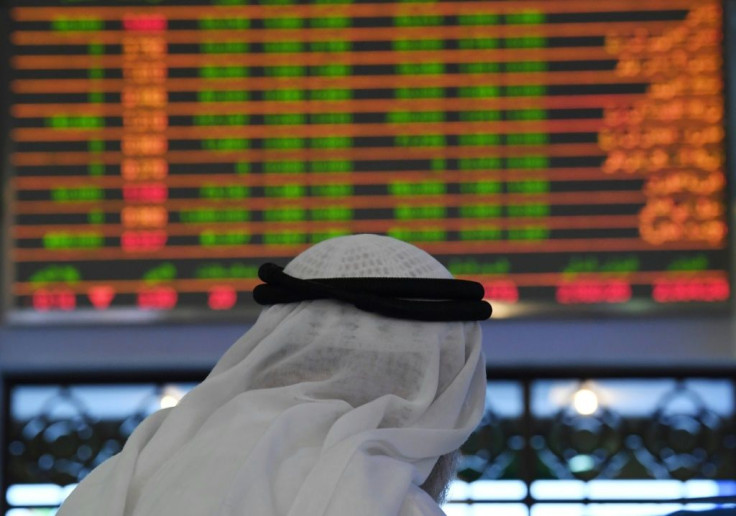Oil Market Chilled By Virus Impact On China Growth

Oil prices have fallen victim to economic worries sparked by a deadly virus spreading from China, the world's second-biggest economy and a huge consumer of crude.
The novel coronavirus first emerged in early December in the Chinese industrial city of Wuhan and has since spread to dozens of other countries.
China's economy traditionally has a voracious appetite for raw materials.
"The reality is that shocks to the Chinese economy always have ripple effects and the commodity markets are deeply affected by it," said AvaTrade analyst Naeem Aslam.
"In simple terms, when economic engines start to grind, the demand for fuel falls."
As the virus has spread, the oil price has slumped in both London and New York, collapsing by more than 20 percent since a January 8 spike which had been triggered by tensions between Iran and the United States.
This week, the main benchmark contracts -- New York's West Texas Intermediate and London's Brent North Sea oil -- plunged to three-month lows as virus-linked demand fears intensified.
On Friday, they first stabilised somewhat after the World Health Organization declared a global health emergency, sparking hopes of better international coordination to combat the disease, before resuming their downward trajectory.
The price falls have however raised eyebrows at the OPEC oil exporters' cartel, whose 13 member nations pump 40 percent of global crude and are anxious to safeguard revenues.
"The dramatic price slump in recent days appears to be making OPEC nervous," added Commerzbank analyst Carsten Fritsch.

The energy minister minister of Russia -- which is not an OPEC member but has been cooperating with the cartel to support crude prices -- said on Friday that the organisation's scheduled March meeting could be brought forward to discuss moves.
"We can meet very quickly if necessary," Alexander Novak said, adding that postponing the March meeting was also an option.
As Beijing battles the outbreak, it has been forced to take drastic measures that have slowed the world's second largest economy.
China's oil imports were slashed by almost two million barrels per day in the period January 15-22, compared with the average daily level for January 2019, data shows from Paris-based energy sector intelligence firm Kpler.
And since the start of the year, the superpower's oil imports are down by about three million barrels per day, according to Kpler.
OANDA analyst Craig Erlam said the overall market impact would hinge on how long the epidemic lasts.
"The longer it takes authorities to get a grip of the coronavirus and the more it spreads, the greater the potential economic impact and the impact on oil consumption. The reaction has been severe so far," Erlam said.
Demand was already fairly muted due to China's Lunar New Year holidays, which have been extended into next week because of the disease.
"Commodity markets, already slow over Lunar New Year, are being hit by worry over the impact of the coronavirus on Chinese demand," said IHS Markit analyst William May.
"Weak buying caused by the Lunar New Year holiday is now being matched against active selling tied to growing fears around the impact of the coronavirus on Chinese demand."
The number of confirmed cases in the new outbreak has already surpassed that of the Severe Acute Respiratory Syndrome (SARS) epidemic in 2002-2003.
© Copyright AFP 2024. All rights reserved.




















